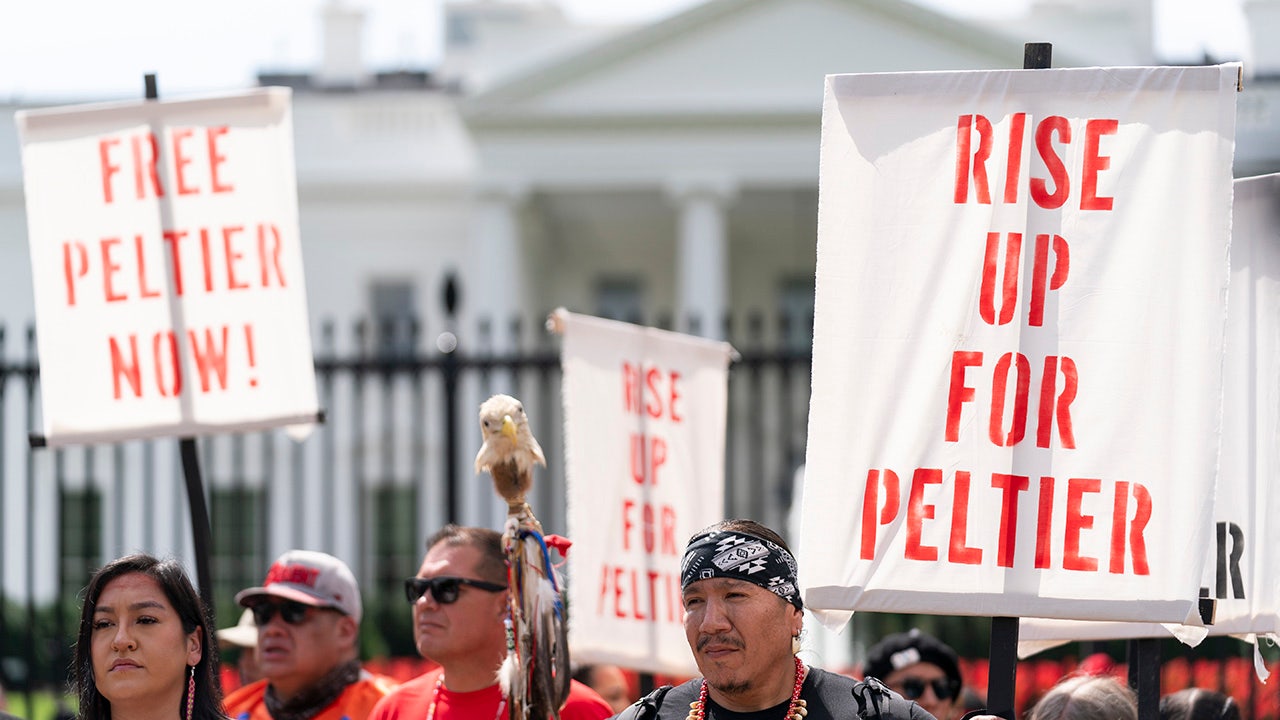United States
Far-left activist Leonard Peltier, serving life in murders of 2 FBI agents, leaves prison under Biden clemency

Leonard Peltier: A Controversial Release and the Ongoing Debate
Leonard Peltier, an 80-year-old Native American activist, has recently been released from prison after serving nearly 50 years for his involvement in the 1975 shooting deaths of two FBI agents, Jack Coler and Ronald Williams, during a confrontation on the Pine Ridge Indian Reservation in South Dakota. Peltier, a member of the American Indian Movement (AIM), has long been a contentious figure, with supporters hailing him as a political prisoner and critics denouncing him as a remorseless killer. His release, granted by former President Joe Biden, has sparked intense debate, highlighting issues of justice, fairness, and the legacy of indigenous rights in America.
The incident that led to Peltier’s imprisonment occurred on June 26, 1975, when Agents Coler and Williams were investigating a robbery suspect on the reservation. They encountered a group of individuals, including Peltier, leading to an ambush. The agents were found dead with execution-style head wounds from a .223-caliber bullet, with evidence suggesting an AR-15 rifle was used. Peltier fled to Canada but was extradited, tried, and convicted in 1977. His trial was contentious, with supporters arguing it was unfair and the prosecution relying heavily on disputed evidence and questionable witness testimony.
Supporters of Peltier, including prominent Democrats like Elizabeth Warren and Bernie Sanders, argue that his conviction was based on flawed evidence and prosecutorial misconduct. They emphasize his age, health issues, and the length of his imprisonment as grounds for clemency, framing him as a symbol of indigenous resistance. Conversely, the FBI and law enforcement groups, along with the families of the slain agents, oppose his release, asserting he has shown no remorse and that his actions were those of a cold-blooded killer.
Peltier’s legal battles have spanned decades, with numerous appeals and parole attempts rejected, including denials from the Supreme Court and previous presidents like Clinton and Obama. However, Biden’s decision to grant clemency reflects a shift in political and public sentiment, recognizing Peltier’s significant community ties and leadership in Native American rights.
The emotional resonance of Peltier’s case is profound. While supporters plan a celebratory homecoming at a reservation casino, highlighting his role in Native American advocacy, the families of the victims express anguish, feeling that justice has not been served. Peltier’s release underscores broader debates about the criminal justice system, indigenous rights, and the complexities of forgiveness and accountability.
In conclusion, Leonard Peltier’s release marks a significant chapter in a case that has divided opinions for decades. It highlights the interplay of justice, politics, and advocacy, reflecting ongoing efforts to address historical injustices faced by Native American communities. While some view his freedom as a victory for rights and compassion, others see it as an affront to the rule of law and the memory of fallen agents. As Peltier returns home, his legacy remains a subject of contention, symbolizing both the struggles of indigenous activism and the enduring quest for truth and reconciliation.


















